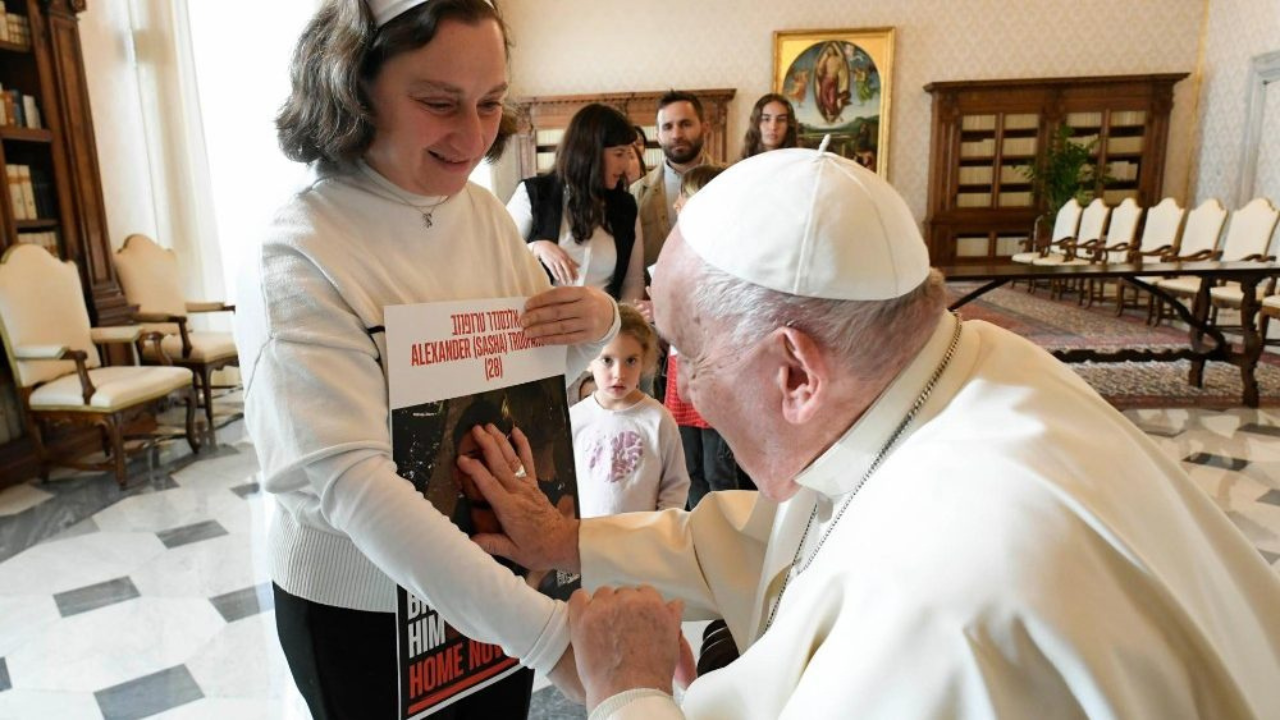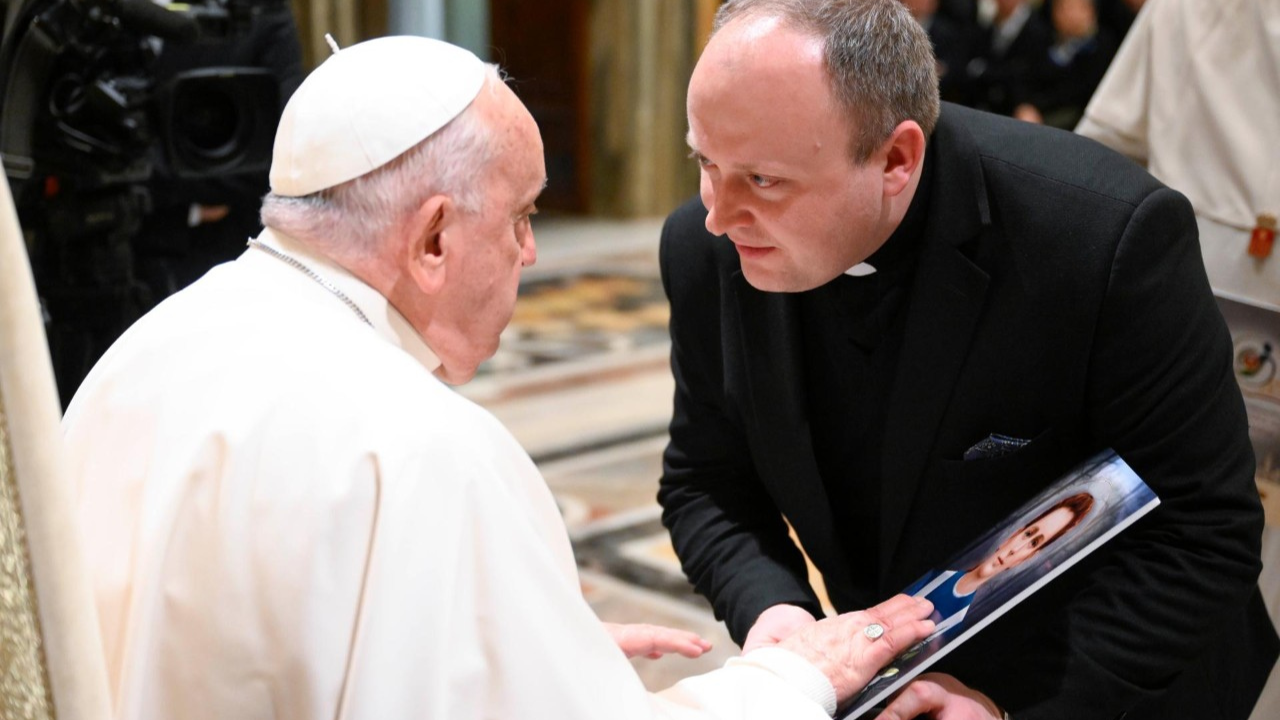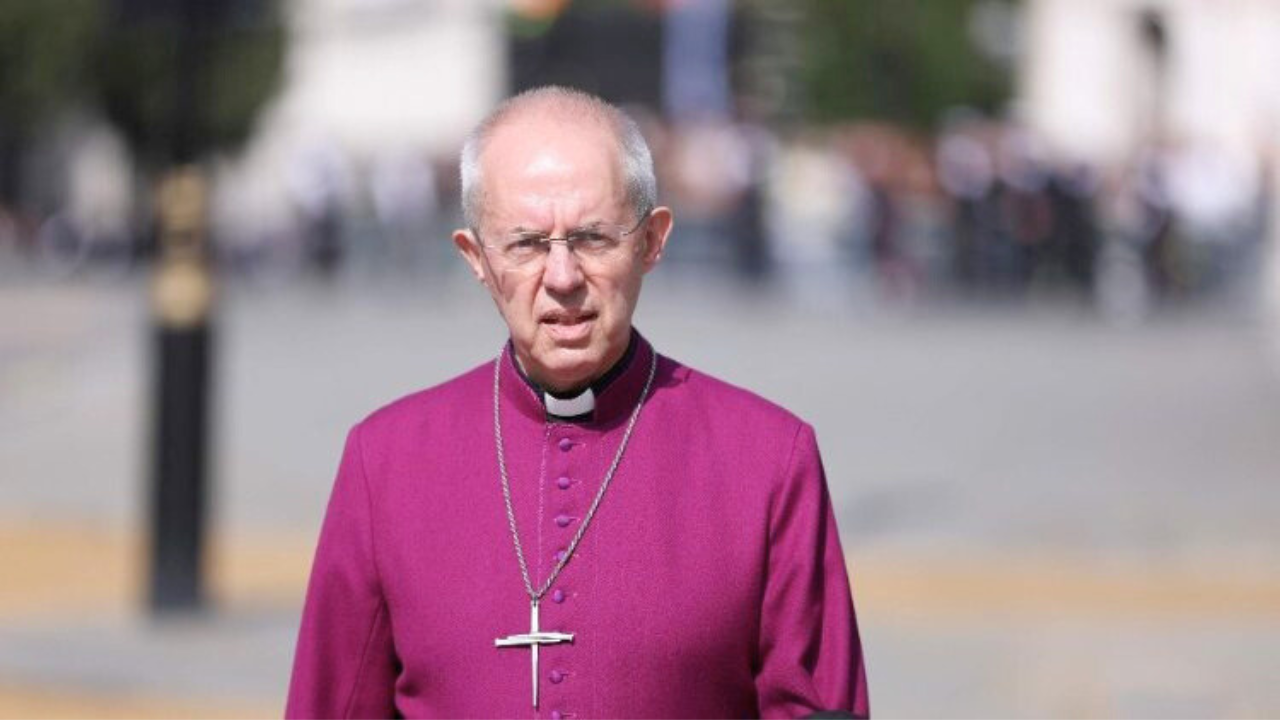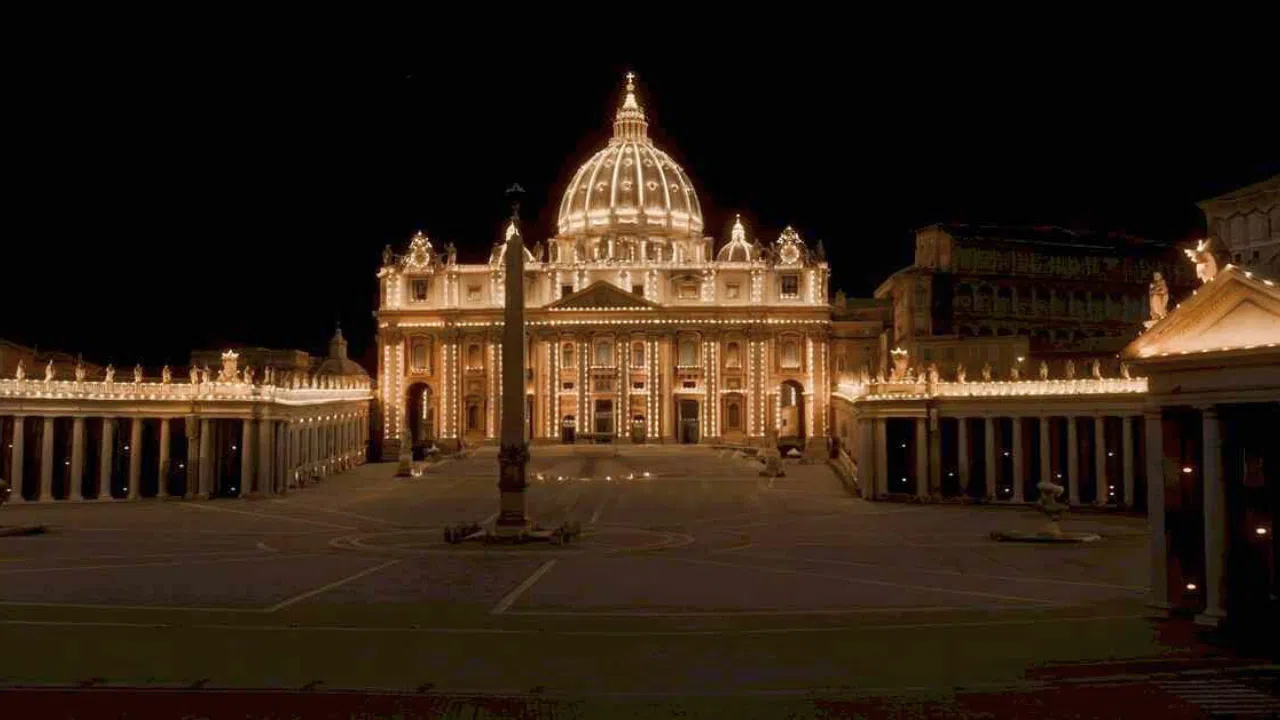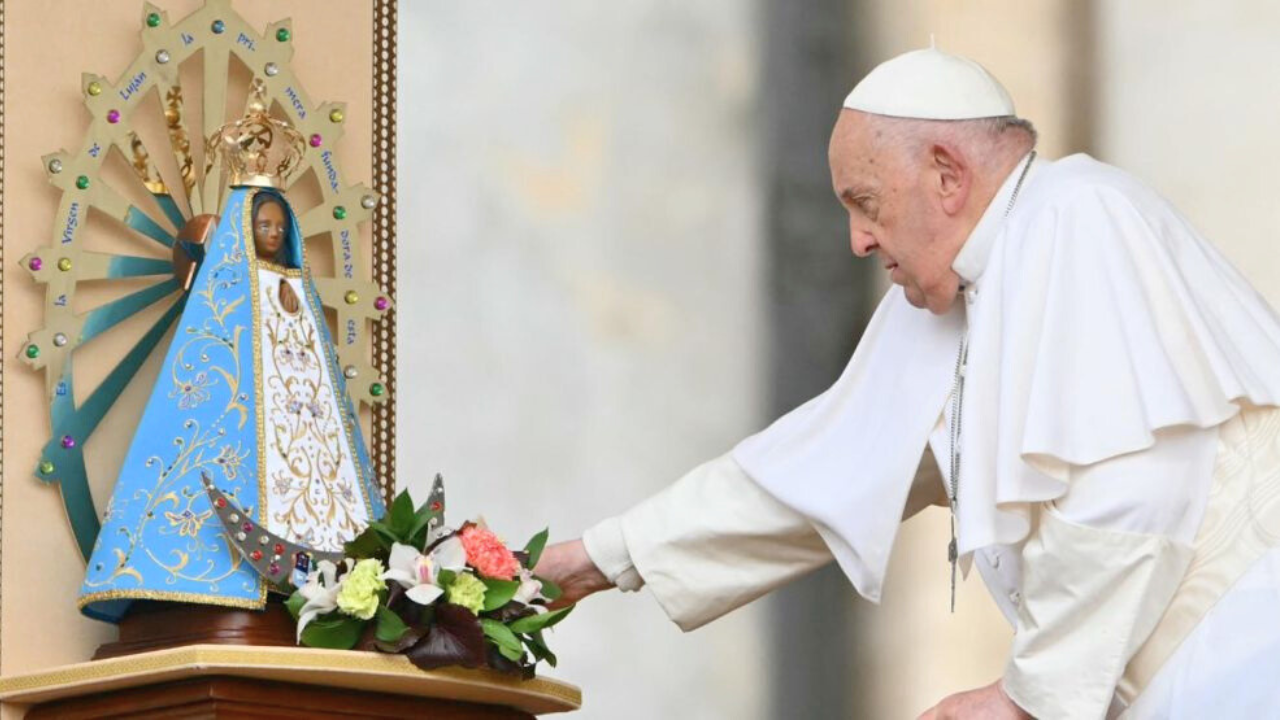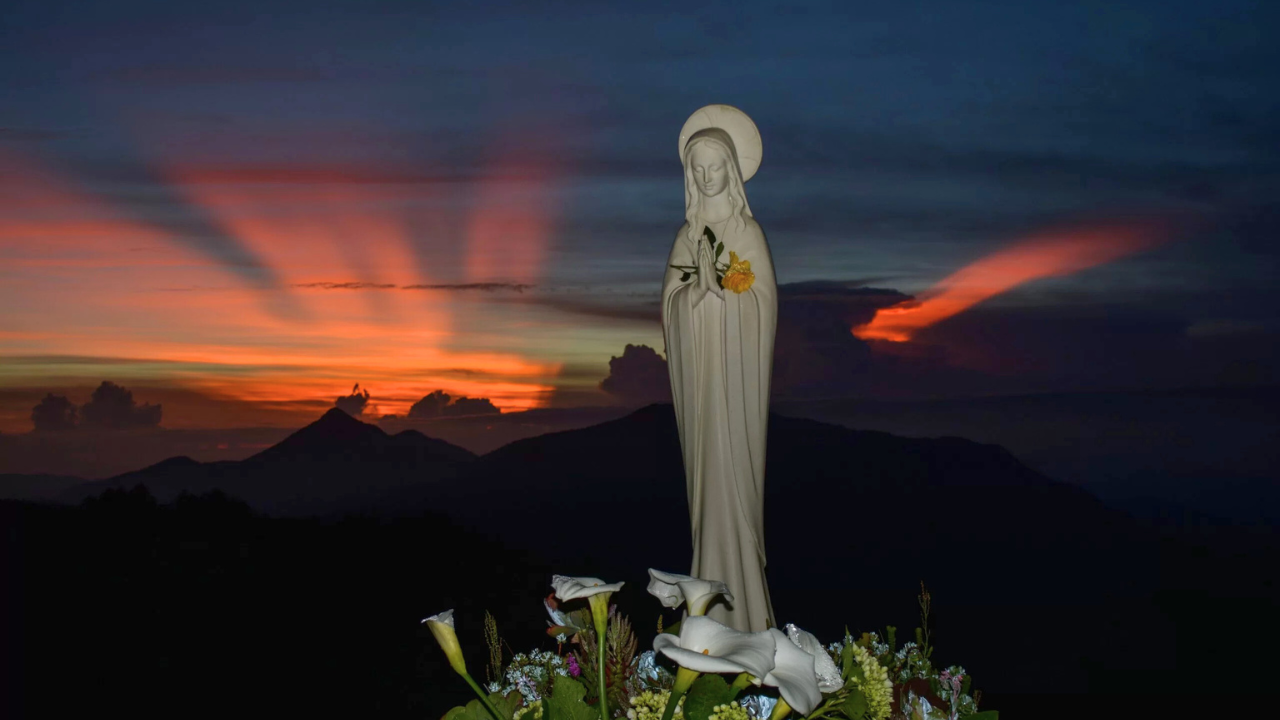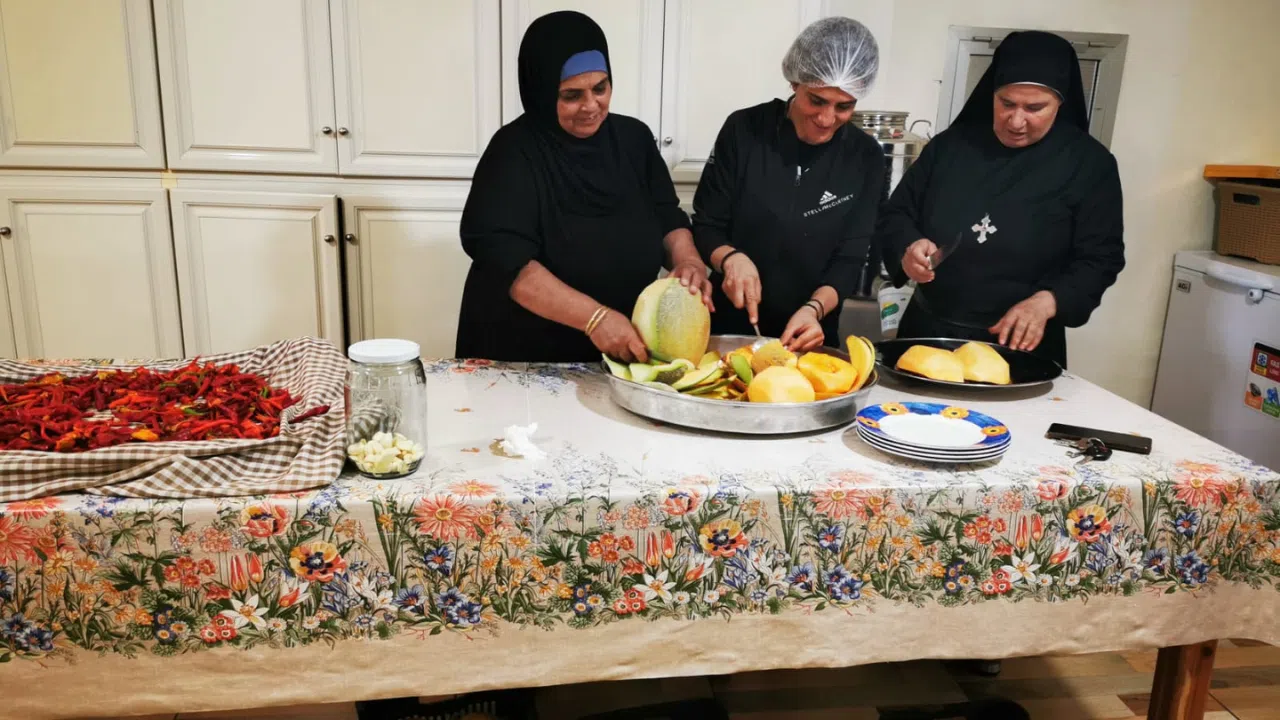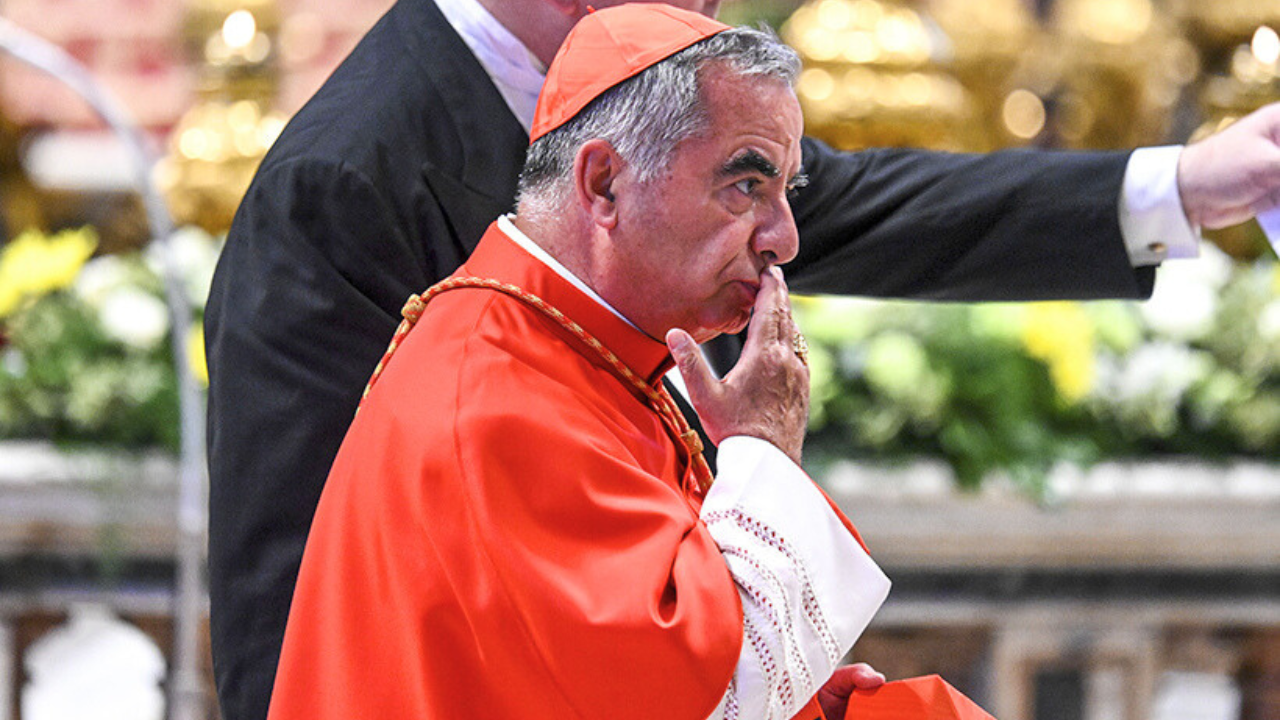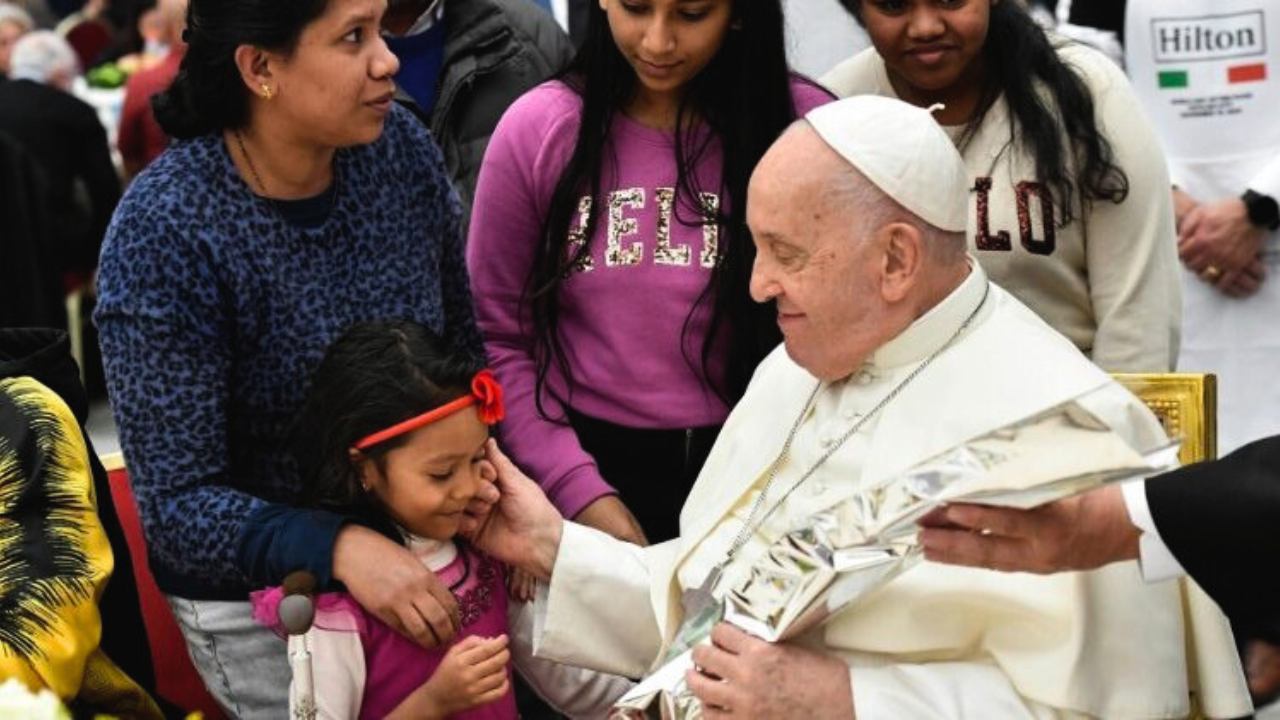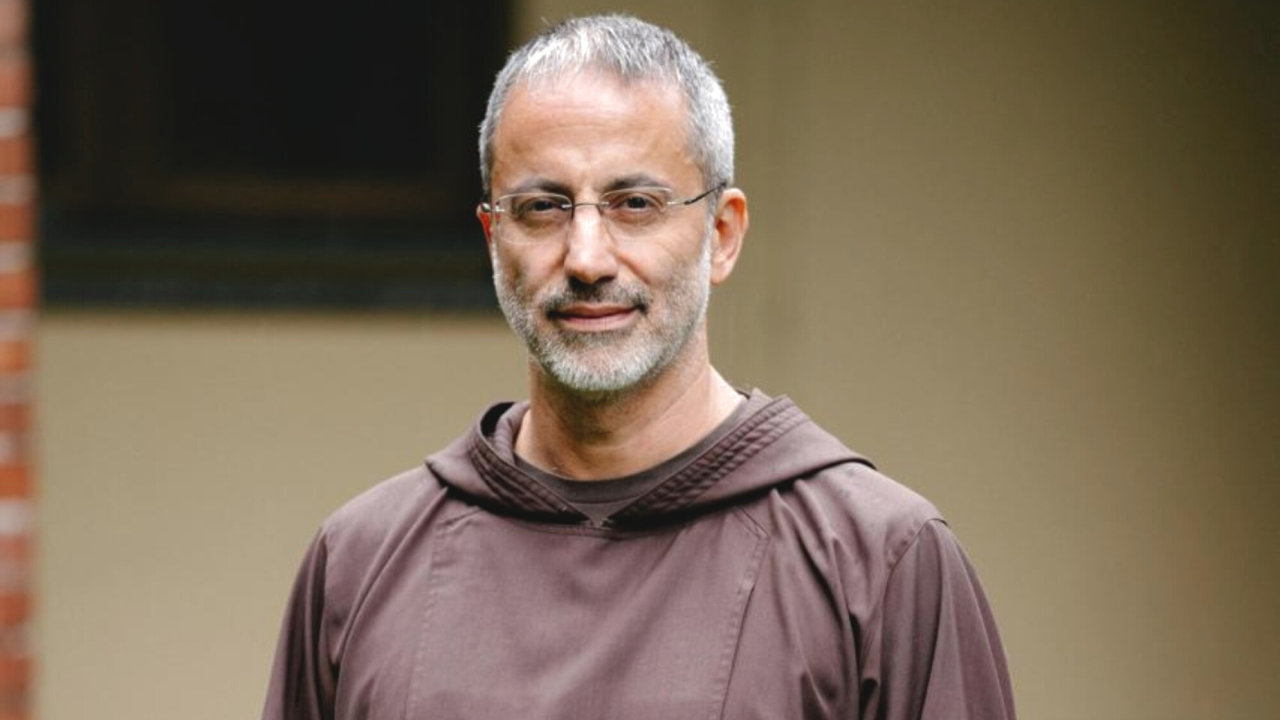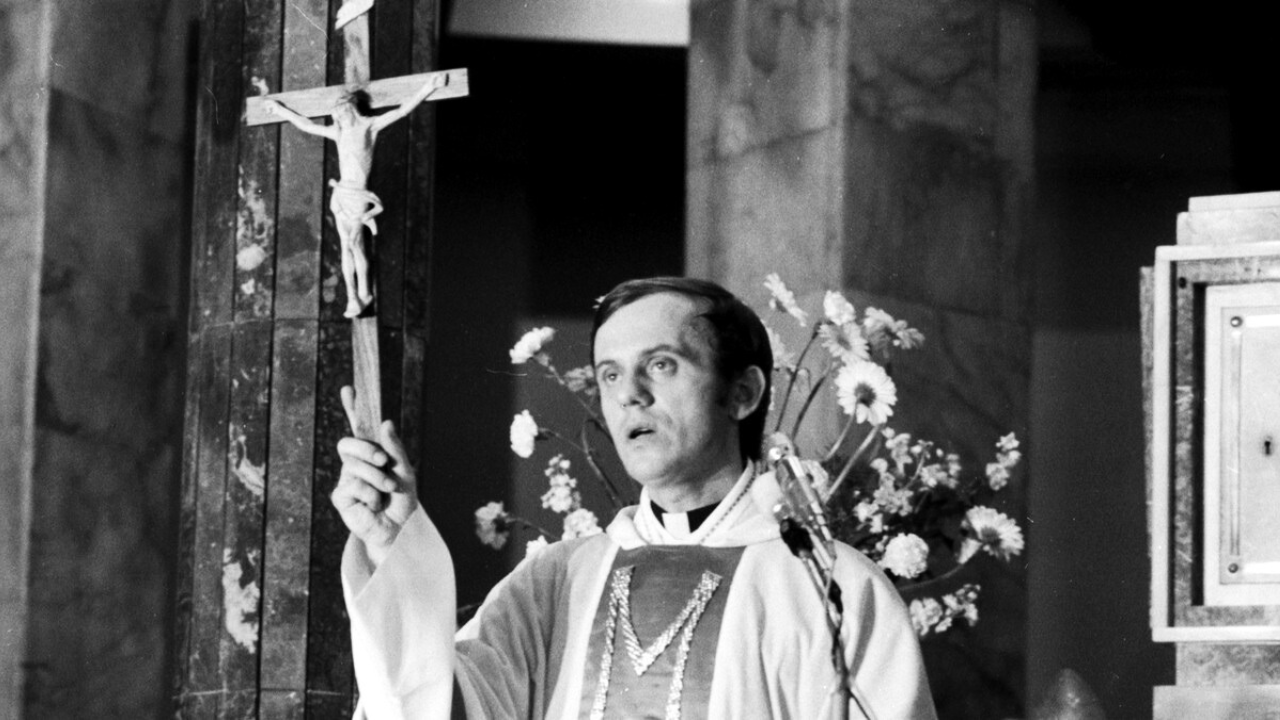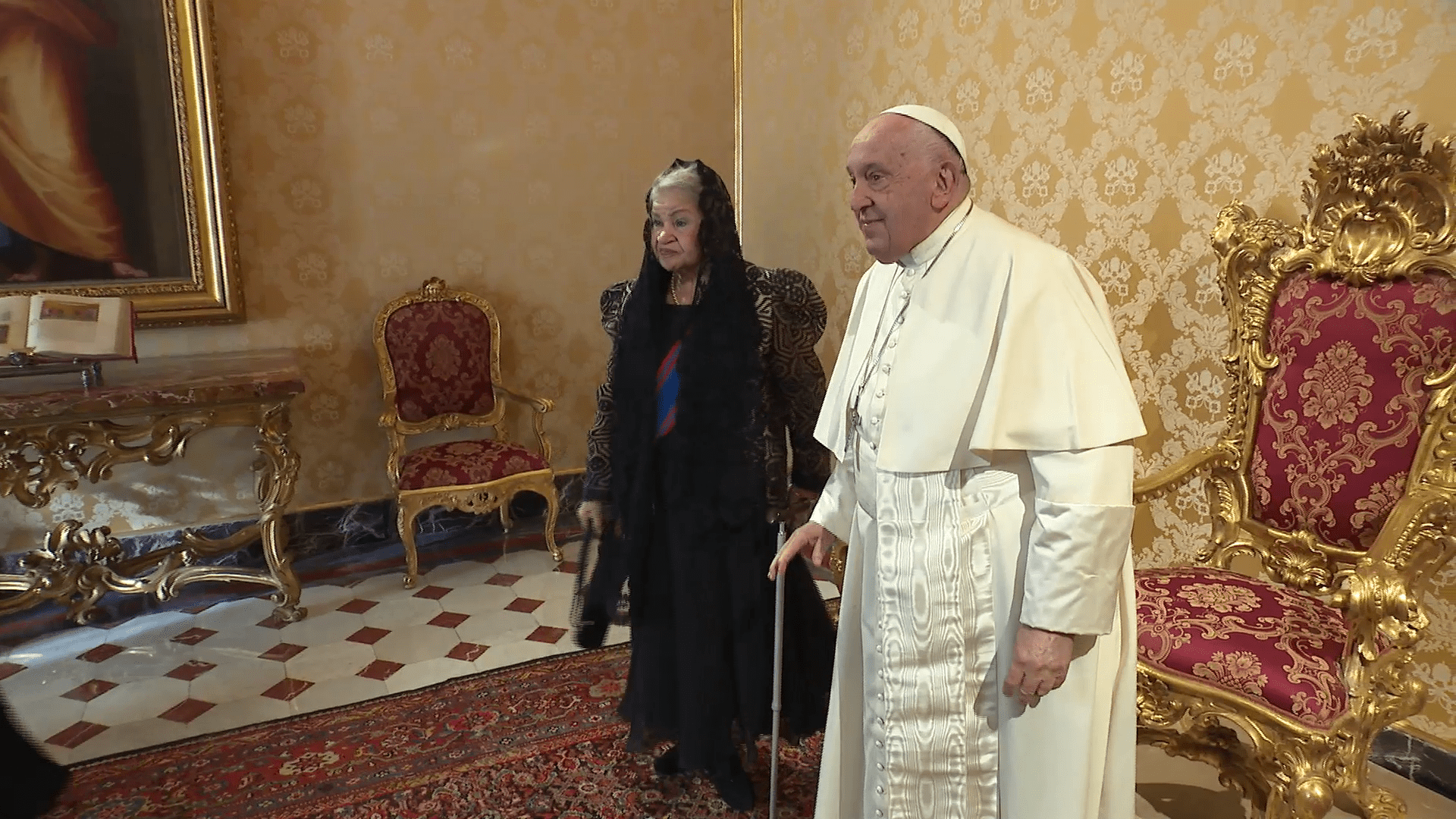During the General Audience, Pope Francis said that “all our thoughts and activities should be a part of our daily conversation with the Lord” and that “there is no aspect of everyday lives, however mundane, that cannot be offered in prayer to God.”
He explained that “in our fragility, prayer is a mark of our supreme grandeur” because of its ability to “transform lives and history.”
Dear Brothers and Sisters, in our continuing catechesis on prayer, we now consider how our prayerful dialogue with God is meant to embrace the events of each day, in our homes, daily chores or work. All our thoughts and activities should be a part of our daily conversation with the Lord.
The Catechism teaches that “it is in the present that we encounter God, not yesterday or tomorrow, but today” (No. 2659). There is no aspect of our everyday lives, however mundane, that cannot be offered in prayer to God and become an occasion of deeper union with him.
As we come to know Christ more intimately in prayer, our hearts are expanded to embrace in love and solidarity all those around us, above all the poor, the unhappy, and those in need. Blaise Pascal once observed that human beings are so frail that even a drop of water can destroy us (cf. Thoughts, No. 347).
Yet in our fragility, prayer is a mark of our supreme grandeur, for prayer can work miracles in our world, transform lives and history, and serve the coming of God’s kingdom of justice and peace.
I cordially greet the English-speaking faithful. I invite everyone, especially in this time of the pandemic, to draw nearer to the Lord in prayer each day, bringing to him our own needs and the needs of the world around us. Upon you and your families, I invoke the joy and peace of our Lord Jesus Christ. God bless you!
Javier Romero
